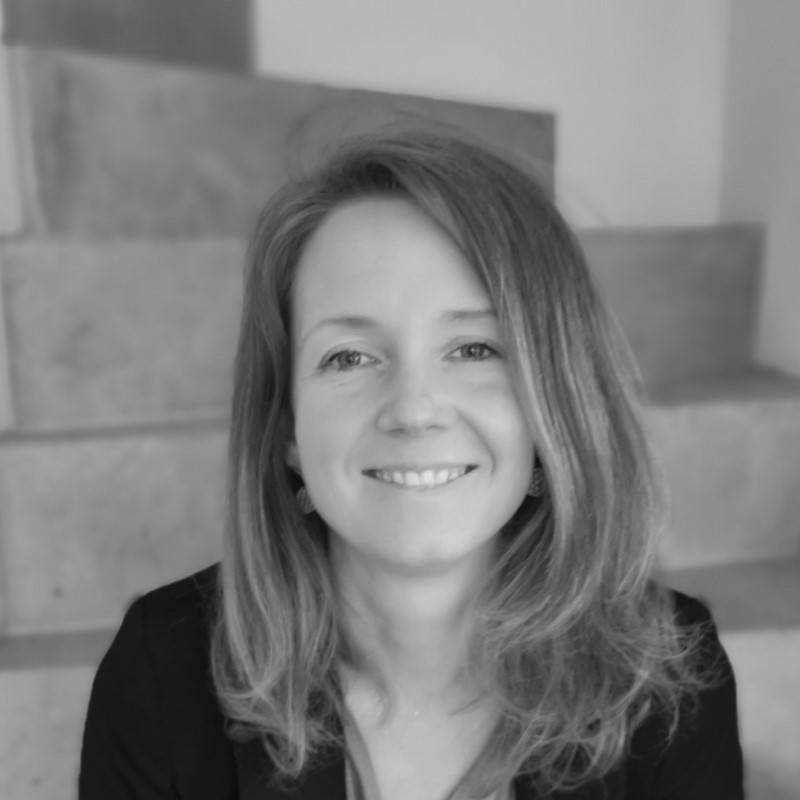In the rapidly evolving landscape of European startup funding, securing capital has never been more complex—or more promising. With European startups raising €19 billion in the first half of 2025 according to Dealroom data, and total investment reaching $426 billion from 2015 to 2024 compared to just $43 billion in the previous decade, the funding ecosystem has fundamentally transformed. In the early stages of startup development, founders often face significant challenges in securing initial capital to turn their business idea into reality.
Yet most founders still struggle with the same critical questions: How do you navigate Europe’s fragmented funding landscape? Having a clear business idea is essential when seeking funding, as it forms the foundation for convincing investors and lenders. What’s the fastest path to non-dilutive capital? And how can you leverage corporate partnerships to accelerate growth while preserving equity?
Securing capital can be especially complex, and in the early stages, many founders rely on personal savings to fund their startups before seeking external investment.
The European Funding Revolution: Beyond Traditional VC
The traditional venture capital playbook is evolving rapidly. While Techstars now invests $220,000 per startup (up from $120,000), and women-led startups raised more than double the VC funding they received in 2020, the most significant shift is toward hybrid funding models that combine multiple sources. Startups must navigate various stages of funding, often beginning with self funding—using personal savings, family, or retirement accounts—to maintain control and avoid debt, before moving on to more complex funding sources as they scale.
Today’s successful European startups don’t rely on a single funding stream. Instead, they strategically combine EU grants, corporate venture-client partnerships, and equity crowdfunding to minimize dilution while maximizing growth potential. Choosing the right funding source at each stage is crucial for long-term success. This approach is particularly powerful in Europe, where 78% of startups use hybrid funding models combining grants with corporate partnerships.
Understanding Your Funding Options: A Strategic Framework
EU Grants: The Non-Dilutive Foundation
The EIC Accelerator budget of €634 million for 2025 represents unprecedented opportunity for European startups. Unlike traditional VC funding, grants like the EIC Accelerator offer €2.5 million in non-dilutive capital without equity loss. However, the application process requires strategic planning and often takes 6-12 months.
In addition to EU programs, many startups and small businesses can access government grants and funding opportunities provided by the federal government and other agencies. These initiatives, such as the Small Business Technology Transfer (STTR) program in the US, support innovation and research and development through competitive funding.
Actionable Step: Register for EIC Accelerator Open 2025 cutoffs via the EU Funding Portal within 14 days. Use AI tools like PitchBob’s grant-finder to identify suitable programs and draft applications efficiently.
Corporate Venture-Client Partnerships: Revenue-First Funding
The venture-client model pioneered by companies like Wayra offers a compelling alternative to traditional equity funding. Instead of giving up ownership, startups receive funding through paid pilot projects with corporate partners. These partnerships can drive revenue growth and improve cash flow for startups, supporting the startup's growth as the startup develops through various stages. A strong business model is often required to secure such collaborations, as it demonstrates the startup's potential to deliver value and scale with corporate clients.
Real Success Story: Galactify partnered with Telefónica Deutschland to solve inefficient corporate feedback processes. The collaboration led to solution integration, new hires during the proof-of-concept phase, and subsequent Bavarian state funding—demonstrating how corporate partnerships can unlock additional funding streams.
This model is particularly powerful because it provides three critical benefits simultaneously: immediate revenue, product validation, and credibility for future funding rounds. Wayra’s Traction Boost program exemplifies this approach, offering startups access to Telefónica’s 46 million customers while providing funding through pilot projects.
Equity Crowdfunding: Democratizing European Investment
Equity crowdfunding platforms like SeedBlink and Crowdcube offer 45-day average closing times versus 6+ months for VCs. These platforms enable startups to raise money by raising funds from many individual investors, often through online campaigns. This approach allows startups to connect with a broad base of potential investors, making it easier to reach funding goals quickly. This speed advantage is crucial for early-stage startups needing quick capital deployment.
Strategic Tip: Draft your crowdfunding campaign using Kickstarter’s reward-tier model with a 60-day limit, then optimize conversion rates using analytics tools like Distil.ai.
Overcoming European Funding Challenges
Market Fragmentation Solutions
Europe's regulatory fragmentation creates unique challenges, but also opportunities. Use Horizon Europe's Widening Programme for cross-border scalability—this addresses the common pain point of navigating different national regulations while accessing broader markets.
Geographic Bias Mitigation
Startups outside major hubs like London or Berlin can target local accelerators and regional grants while leveraging digital pitching to investors in major hubs. The key is combining local support with global reach.
Complex Application Processes
Leverage AI tools and expert partnerships to streamline grant applications. Many successful startups partner with organizations like Wayra that provide both funding and application support through their venture-client model.
The Wayra Advantage: Pioneering Venture-Client Innovation
Wayra Germany represents the evolution of startup funding through its unique venture-client model. Unlike traditional venture capital firms that require company equity and often act as lead investors, Wayra focuses on non-dilutive funding and creating resilient customer relationships between Telefónica and innovative tech startups that benefit both sides.
Key Differentiators:
- Investment range: €150K to €5M without participating in dilutive financing rounds
- Market access: Direct access to Telefónica’s 46 million German customers
- 5G Innovation Hub: Exclusive access to Munich’s 5G Tech Lab with cutting-edge infrastructure
- Global reach: Seamless access to key markets in Spain, UK, and Brazil
- Industry expertise and investor connections: Wayra provides startups with valuable industry expertise and connects them with professional investors, supporting growth beyond initial funding rounds.
The 5G Tech Lab in Munich provides startups with an innovation hub featuring a live 5G network, exclusive tools, and access to the Wayra IoT platform. This infrastructure advantage is particularly valuable for startups developing next-generation applications requiring high-speed, low-latency connectivity.
Practical Implementation: Your 30-Day Action Plan
- Week 1: Research and apply for at least one EU grant through the EIC portal. Also, consider alternative sources of startup capital for early stage companies, such as seeking seed funding from friends and family, approaching an angel investor or angel investors, or using personal funds to get your business off the ground.
Advanced Strategies: Maximizing Funding Synergies
The most successful European startups create funding synergies by combining multiple sources strategically. For example, securing an EIC grant provides credibility for corporate partnerships, which in turn generates revenue that attracts traditional VCs for scaling rounds. In these scaling rounds, venture capitalists and private equity firms often provide substantial funding to high growth companies, typically in exchange for future equity or through convertible debt instruments. As the amount of money raised increases, startups may also attract other investors such as sovereign wealth funds, in addition to traditional venture capital investments.
Case Study: Climate fintech Bees & Bears secured €500 million for home energy financing technology rollout by combining grant funding with corporate partnerships and traditional investment—demonstrating the power of hybrid funding approaches.
Frequently Asked Questions
Q: How do European grants differ from VC funding?
A: Grants like EIC Accelerator offer €2.5M non-dilutive capital without equity loss, while VC funding typically requires 15-25% equity dilution.
Q: Can startups combine multiple funding sources?
A: Yes, 78% of successful European startups use hybrid models combining EIC grants with corporate venture-client deals and other funding sources. When combining funding sources, it is crucial to prepare a business plan that includes detailed financial information and financial projections. This helps demonstrate how much funding is needed at each stage and increases your chances of securing investment.
Q: What’s the fastest early-stage funding for EU startups?
A: Equity crowdfunding via platforms like SeedInvest closes in 45 days average versus 6+ months for traditional VCs.
Q: How does the venture-client model benefit startups?
A: It provides revenue, validates products, and builds credibility without requiring equity investment, while offering access to large customer bases for scaling.
Q: How do startup companies and young companies typically secure funding in the earliest stages?
A: In the earliest stages, startup companies and young companies often rely on friends and family or personal funds before transitioning into an actual business or new business. This early support is critical before seeking more formal investment sources.
The Future of European Startup Funding
The European funding landscape continues evolving toward more founder-friendly, flexible models. The combination of increased EU grant funding, innovative corporate partnership models like Wayra’s venture-client approach, and democratized crowdfunding platforms creates unprecedented opportunities for European startups.
As a startup develops, it is crucial to build strong relationships with potential investors and future investors who can support each stage of the startup's growth. Success in this environment requires strategic thinking, hybrid approaches, and partnerships with organizations that understand both the funding landscape and market access challenges. Contact Wayra to explore how their venture-client model can accelerate your startup’s growth while preserving equity and accessing Telefónica’s extensive customer base.
Ready to transform your funding strategy? Connect with Wayra’s team to discuss how their unique approach to startup funding can accelerate your growth in the European market.
Resources:













